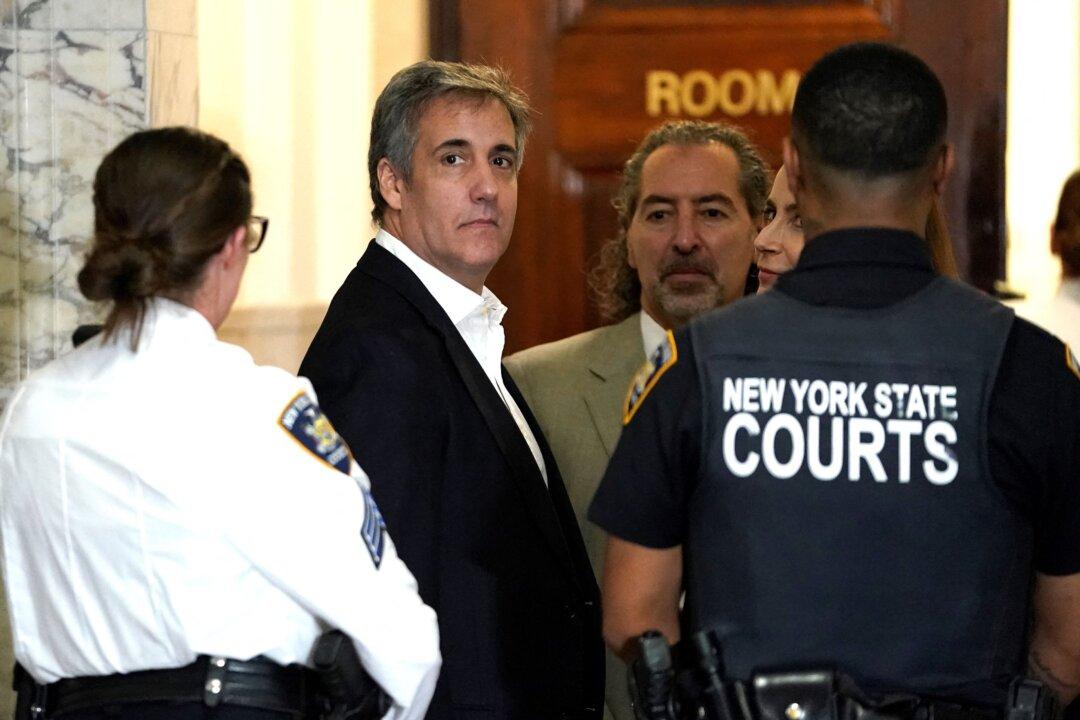Defense attorneys for former President Donald Trump cross-examined former Trump lawyer Michael Cohen on Oct. 25, seeking to establish a pattern of Mr. Cohen lying under oath to discredit him as a witness, a day after Mr. Cohen had testified that the former president had him inflate asset values on the Trump Organization’s statements of financial condition (SFC).
Mr. Cohen, a key witness for New York state in its civil fraud trial against the former president, eventually backtracked on his claim and said that he couldn’t “recall” President Trump “overtly” asking him to inflate numbers.





